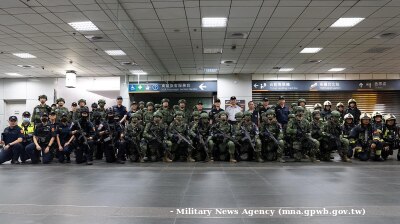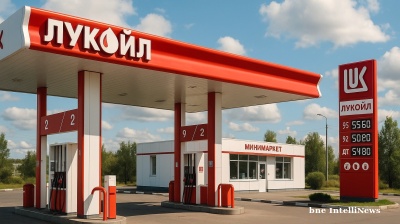International companies in search of tech talent and innovative local startups are converging in Serbia, an emerging high-tech hub that is especially strong in blockchain and game development.
Alongside them are the international companies drawn to Serbia by the availability of tech talent and relatively low costs; DSI CEO Nebojša Bjelotomić cites costs that are two to three times lower than in major European cities combined with the quality of life in Belgrade. Among the major global companies in Serbia are Microsoft, Intel, Dell and a number of game developers such as Endava and UbiSoft.
While some Serbians are happy to work for international companies, others choose to strike out alone. This has created a growing startup scene in the last few years. Many of these new startups are nurtured by the Impact Hub Belgrade, a co-working space and a business incubator. The hub is housed in what started out as the Palace of Co-operatives, then in the socialist era became a radio studio. Now furnished with co-working desks and coffee bar, the decor pays homage to this history, and during the recent lockdowns a 21st century take on the radio studio, the podcast.rs service, was launched.
Speaking to bne IntelliNews, co-founder Nenad Moslavac recalls just how much things have changed in Serbia’s startup scene over the last eight to 10 years. “Back in 2014 it was difficult to explain what a startup is; starting your bakery is not a startup,” says Moslavac. However, even now not everyone has the startup mindset. “Serbia, like many other European countries, is a rather comfortable place… being a tech engineer puts you in a very comfortable situation. It’s difficult to take off those comfortable shoes to become a startup founder.”
Other industry insiders also believe the attitude to entrepreneurship is changing. “I think we are going through a modification of attitude. On one side entrepreneurship is maybe not something very strongly engrained in the mentality of the Serbian people, but on the other side our younger guys grew up on Silicon Valley, seeing successful entrepreneurs riding off into the sunset … this had an impact on Serbia,” says Bjelotomić.
Summing up what has happened in Serbia in recent years, Nemanja Petrovic, co-founder and business strategy adviser at startup Traken, says: “the IT sector development caught everyone by surprise. It grew organically – that’s the best thing.”
Bringing people together
Both the DSI and Impact Hub are working to bring people together – whether it’s large tech companies, startups, investors, government officials or all of these – with the aim of growing and developing Serbia’s tech ecosystem.
The DSI works with companies and the government, as well as organisations that support startups such as incubators and academic programmes. “We want to be the house for IT … we try to be middleman between big players, small players, academia, institutions, startups,” says Bjelotomić.
“You can’t really succeed without everyone being involved,” he stresses.
Nikola Mijailovic, CEO and co-founder of startup Joberty, comments on the recent changes. “Honestly, the last couple of years has been crucial for the startup ecosystem in Serbia. New accelerators, hubs and VC funds are emerging, and Serbia isn't an exception,” says Mijailovic. He also comments on the acceleration programmes in Serbia, saying: “Mentoring, investors, lectures, grants and networking are the key benefits and provide tremendous support for the startup ecosystem.”
Impact Hub also seeks to create a community for startups, and bring them into contact with investors and the wider tech community. “We are a window to the world, we try to reach out to entrepreneurs in Belgrade and beyond,” Moslavac says. COVID-19 was a challenge in that respect. However, by taking things online, the hub was able to reach out beyond Serbia to entrepreneurs in other countries in the Western Balkans.
The Serbian government is also increasingly aware of the importance of the growing tech sector, and is engaged in a dialogue with the industry. This led to, for example, the 2021 law on innovation which introduced for the first time a definition of a startup, as well as a registry of startups.
“There is a dialogue with government … there is an effort to create a better environment for the whole ICT sector and keep the ecosystem open, making it easier to start up companies,” says Traken’s Petrovic.
Investors consider Serbia
The other component of the startup ecosystem is funding. Serbia is gradually getting more locally focussed investors, a similar trend to that seen elsewhere in Southeast Europe and helped by the European Investment Fund (EIF) that was the cornerstone for a number of venture capital funds in the region. More recently, the government initiated a €50mn venture fund of funds. Among the regional venture capital investors active in Serbia are South Central Ventures, Bulgaria’s LAUNCHub Ventures and Fil Rouge Capital of Croatia.
However, Bjelotomić argues there is more still to do. “To attract serious VCs and for deal flow to be sturdy and interesting for someone from abroad, our ecosystem needs to develop further, probably go up another 50% before three of four different VCs will be continuously working in this area.”
Both Impact Hub’s Moslavac and representatives of startups like Joberty and Traken believe the country needs more business angels and other pre-seed investors. Mijailovic tells bne IntelliNews: “What I would like to see more in the future are angel investments. Also, I would like to see more potential investors from the corporate world become motivated to invest in startups, get involved in the ecosystem, learn about them and support them to succeed.”
Blockchain for the energy sector
Traken’s Petrovic makes a similar point. So far Traken has been bootstrapped and secured grants, but it is now looking for seed investment. Its team have participated in several EU accelerators. Unlike first time founders, its co-founders have the advantage of already running a blockchain development studio, which gives them access to talent and other resources.
Traken, where the team developed a data tracking, management and exploitation tool for smart electrical grids, is part of Serbia’s growing blockchain segment. Back in 2019, advisory and research organisation Startup Genome report identified Serbia among the top five destinations in the world according to the number of blockchain developers. Serbia and nearby Novi Sad were found to have a particularly promising blockchain ecosystem.
Petrovic has a broad range of industry experience including as a former economy ministry adviser, on smart city projects and a venture capital investor, experience that he now aims to bring to the energy sector.
The Traken team are getting ready to pilot the project with international distribution service operators (DSOs) after an initial pilot with local startup Cargo (the Serbian Uber). “It is a good time for us because integration of renewables was a problem for the systems even before this energy crisis,” says Petrovic. “If you want Europe to move to sustainable, renewable energy, then you have to deal with viable sources of energy that need better tools to manage flexibility.”
He references the “huge potential” of the 50% of installed solar capacity owned by individuals that is not currently part of the market. “The only way to manage it is by using blockchain. We created a system that validates the source, validates the data from source and connects data to the individual,” Petrovic explains.
The other standout area within the Serbian tech sector is game development. According to data from the Serbian Games Association, there are currently about 130 teams and companies in Serbia that are actively working on the development of games and other services closely related to the gaming industry. The organisation estimates that more than 2,200 people work in the video game sector, with another 450 jobs set to be created in 2022. Overall the Serbian video game industry had a turnover of around €125mn in 2021.
Among the most successful local companies is Belgrade-based mobile games developer Nordeus, creator of Top Eleven Football Manager and strategy game Heroic – Magic Duel. The company was acquired by Take-Two Interactive for $378mn in 2021.
Bjelotomić believes Serbian game developers can get even bigger. “Maybe we don’t have a unicorn in gaming but at least have really big global players in the market. And you never know, a single hit can make difference,” he says.
Food and agriculture
He also points to biotech and agritech as an area where Serbia has strong potential, given that “we are still predominantly an agricultural county”. New technologies to increase food production and – the other side of the coin – to reduce food waste are becoming increasingly importance in the context of climate change and the need to feed the world’s growing population.
Serbia’s second city of Novi Sad is home to the BioSense Institute that works on projects that span bio systems and IT. The institute, now an important research centre with hundreds of international partners, started out as a small group of people who believed in the idea that IT and bio systems would meet in the future, director of the institute Vladimir Crnojević said in an interview with bne IntelliNews in April. That was back in 2005-06. “At that time it was science fiction,” he says. However, he adds, focusing on that area “was a really good bet, because now it’s completely melting. The borders between bio systems and IT are getting lost”.
Today, the institute is organised in three research centres: the centre for bio systems, the centre for sensing technology and the centre for information technology. Technologies developed under its research projects are used in Serbia and elsewhere.
Another aspect of feeding the world’s growing population is reducing food waste, an issue tracked by Serbia startup EatMeApp, developer of a smart assistant that helps users make educated decisions about how and when to use their food.
“Our grandmothers and their attitude about food are our inspiration. They built into our DNA that throwing food away is not under any circumstances a reasonable thing to do. So, one day in front of my open refrigerator it struck me while I was getting ready to throw away a chicken filet (again!) – what if we have an app that sends reminders about food expiration dates?” says co-founder Aleksandra Lazovic-Lønningen, explaining how the company came into existence.
“Eat Me App conceptually grew since then, but it’s core mission a to assist people in making conscious and educated food consumption decisions,” Lazovic-Lønningen adds. “The result is less food waste, less CO2, more disposable income.”
Android and iOs versions of the app have already been released, and Lazovic-Lønningen says the company’s user base is growing organically thanks to early adopters. This summer there are plans to accelerate adoption with an intensive user acquisition strategy.
Lazovic-Lønningen believes the current difficult times – countries across Europe and much of the world are experiencing rapid inflation including of food prices – are encouraging people to live more sustainable and reduce food waste. There is also an environmental dimension. Lazovic-Lønningen cites data showing that food waste is the third largest greenhouse gas (GHG) emitter, and within that household food waste accounts for 60% of total food waste. To give an idea of the scale, she says, a “family of four on average throws €30-50 weekly straight to the garbage bin”.
While there are a growing number of apps in the food waste space, EatMeApp differs from others, Lazovic-Lønningen says, because it is targeted at households rather than businesses such as restaurants and grocery shops. “Because we believe that the most important and numerous agent of change is – us, people, citizens.”
International talent
With local startups growing up, and the demand for skilled workers in international companies also increasing, the need to keep and retain talent in intense, a challenge cited not only in Serbia but across the region.
Joberty was set up precisely with this in mind. The company was born out of its founder’s experience of the search for talent; Mijailovic is a former CEO and co-founder of an HR company in Serbia.
“I had experienced first hand the difficulty of finding developers. And even if you magically happen to find them, it was about culture fit with the company, and developers would stay approximately 1.5 years with the IT employer … It was frustrating, so I've decided to do something about it. The idea existed in my head only for some time, and then I started opening up,” Mijailovic said.
Mijailovic and his wife Dusica, one of the company’s four co-founders and its product manager, began exploring the possibility of building a real product around this. “I never dreamed that something that was just an idea in my head would become a reality so soon. In 2019 in Belgrade, Serbia, Joberty was born, and ever since, it has grown each year exponentially. I couldn't be more proud of the team that works very hard to deliver such amazing results,” Mijailovic said.
Today, the company has 25 employees, who Mijailovic describes as its key asset, and operates in Serbia, Croatia and Romania. It currently has over 50,000 registered users, 15,000 reviews on the platform, and co-operating with over 1,200 tech companies in Southeast Europe.
Global software engineering firm DataArt, which has been present in the Balkans since it entered Bulgaria in 2016, recently acquired Belgrade-based Software Nation. “We feel confident about establishing our presence in Belgrade because of the well-rounded tech sector, and the solid tech talent in the country and the region,” said Mikhail Zavileysky, head of organisational development at DataArt, at the time of the acquisition. He describes the labour market in Serbia as “strong and developed”, pointing to particular strength in Java and .NET skills.
“DataArt has always viewed the Balkan region as promising. Now we’re focused on Belgrade, but we’re planning to open a second office in Novi Sad – a prominent university town with great talent,” Zavileysky says, commenting to bne IntelliNews on the partnership with Software Nation.
"We’re actively recruiting locally, and we welcome everyone who’s decided to relocate to Serbia. Erik Popovic, SVP DataArt Balkans, is spearheading our effort and helping us find the best talent. Remote recruiters are helping us as well."
Later in 2022, developer of online military games Wargaming announced the opening of two new studios in Belgrade and Warsaw following its decision to quit Russia and Belarus after the invasion of Ukraine. The company commented that both cities have “fast developing technology sectors with enormous potential”.
Working with the brain drain
Serbia, like other countries in the Western Balkans – and across most of emerging Europe – has experienced mass emigration and population decline in the last few decades. That makes competition for talent all the more intense.
The DSI’s Bjelotomić notes that the brain drain is a huge problem for Eastern Europe, especially Southeast Europe, though he believes it has slowed down recently, for two reasons. “First IT is such global industry it doesn’t matter where you sit, you can do your job anywhere. The second factor is corona; when the going gets tough, the best thing is to go home.”
When it comes to tacking the brain drain, Bjelotomić believes the good jobs offered by the IT sector can help. “These are the good jobs, where people get to be creative, to grow personally and professionally. They are the guys that don’t leave … in that sense helping startups is almost like social service.”
Impact Hub’s Moslavac acknowledges the problem of brain drain and the difficulties in reversing it, but says it’s important to look for the positives. “We have good examples from other counties where lot of good talent left, but brought back knowledge and often funding,” he says. “I don’t think the brain drain is something that can really be stopped, but probably there are ways for Serbia to benefit more from great people that are not physically here.”
Petrovic also talks of Serbia’s “very big technical diaspora”, with highly educated Serbians who left their home country now sharing experience and knowledge. Like Bjelotomić, he believes there has been movement back into Serbia since the start of the pandemic, not least because it was one of the first countries in Europe to roll out a mass vaccination programme.
He believes Serbia has benefited from its relationships with developing countries forged during the Cold War when Yugoslavia was one of the leaders of the non-aligned movement. Even today, Serbia is well known among those nations. “We’re a brand in these countries, [young people are] still coming here to go to college,” he says. This brings new talented graduates into Serbia.
More recently, following Russia’s invasion of Ukraine in February, countries across emerging Europe, including Serbia, have received a flood of immigrants, among them numerous tech professionals. These include both Ukrainians fleeing the war and Russians and Belarusians who can no longer live with their government’s actions and their countries’ international isolation. DataArt’s Zavileysky comments that the Serbian market "is welcoming many engineers from Russia and Ukraine, which certainly has an impact”.
Starting with education
The start of creating a new generation of tech talent lies in education, and the DSI is reaching out to universities and schools to help. The organisation has been working with the education system from elementary school right through to postgraduate level. This includes the Master 2.0 programme where the DSI brings different faculties together to create cross-disciplinary master programmes that give students the skills to work in industries such as game development.
Industry representatives say that while Serbia provides a good technical education more needs to be done on the commercial side. “We need to change that,” says Bjelotomić. “It’s good that we are good engineers, but it’s important to note that people investing in startups are predominately from the financial sphere. They are looking for entries and exits, not necessarily for the best technology.”
Similarly, Moslavac says that Serbia has a strong education that is “left over from the old system of building good engineers”. However, he says, “being a good engineer doesn’t make you a good businessman … to build a a good startup you have to understand business. There are a lot of smart people around but it’s not about building a perfect product, it’s about having a perfect customer for the product.”
On the other hand, Traken’s Petrovic is positive about Serbia’s "very good old school, technically based curriculum” which, he believes, “is a goldmine if you know how to act on it”. This education is coming into its own with the emergence of the blockchain industry.
Global companies with Serbian roots
One constraint cited many times by industry figures in Belgrade is the small size of the Serbian market. That being the case, ambitious startup founders look to go international from the start or at least early on in their development.
“The size of the market is a challenge for startup founders here. It’s a very small market with not such a startup culture,” says Maslovac. “Serbia is place of talent – there is certainly a lot of talent in Serbia, especially tech talent – however, such a market makes it very difficult to build a product or service for the customer, as this is a numbers game. This is why it’s very interesting to approach the market of the Western Balkans, which has a potential 20mn users instead of 6mn for their services.”
Some of the really standout Serbia-founded companies went abroad early on. Among them is consulting, software engineering and digital product development company HTEC Group, which now has its headquarters in San Francisco. In 2021, the company bought up Momentum Design Lab in Silicon Valley, following this with the announcement of a $140mn investment from Brighton Park Capital for global expansion. That deal was among the largest initial funding rounds by dollar value in Europe in the past year, HTEC said at the time.
Following the latest investment round, the aim is to “build HTEC into one of the most impressive global technology consulting companies,” said Aleksandar Cabrilo, CEO of HTEC Group at the time of the investment. The company, founded in 2008 as a startup within the Business Technology Incubator of Technical Faculties of the University of Belgrade, has now grown into an international company that employs over 1,000 people.
Startups interviewed by bne IntelliNews also referenced international expansion. Traken, for example, is seeking to work with electricity companies from other European countries rather than focussing on Serbia.
Joberty is fundraising for a seed round that it plans to use for its expansion to global markets, including the US. “Our plans are ambitious, but simply that's the only way to go,” said Mijailovic. “The startup scene is very fast-paced, and if you move slowly, you might still survive, but you won't win big time. Big dreams took us here, and we won't stop until we succeed globally.”
EatMeApp’s Lazovic-Lønningen says "going global” when asked about the future plans for the company. At the same time, however, she talks of the power of Serbia’s culture and social networks. “[Co-founder] Sanja Dramicanin] and myself … want to create even stronger momentum in Serbia,” Lazovic-Lønningen says. “We dream big, cross-border, but our heart is where our home is and our grandmothers are.”
Features

Russia tax service targets Russian accounts in UAE
The Russian Federal Tax Service (FTS) has ramped up its scrutiny of Russian nationals holding accounts in the United Arab Emirates, following the effective implementation of automatic tax information exchange between the two countries.

INTERVIEW: Can Albania’s tourism miracle last?
As social media brings in the crowds, the head of the Albanian Tour Operators Association tells bne IntelliNews Albania should turn away from mass-market tourism and focus on higher-value offerings.

COMMENT: Taiwan’s equality paradox - when “progressive” doesn’t mean equal
Taiwan’s insistence that women should have access to every privilege of citizenship - from political office to professional advancement - but not its responsibilities, undermines the moral foundation of its democracy.

Russian e-commerce giant Wildberries goes on a mysterious M&A spree
Russian e-commerce giant goes on M&A spree Almost a year after the controversial merger with a leading outdoor advertising firm, Russia’s leading e-commerce site Wildberries is indulging in a fresh bout of eyebrow raising deals.



